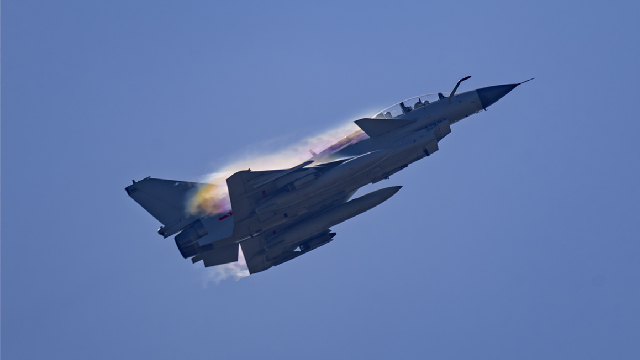By Wang Qiang
Recently some people in the US have been clamoring for building a new dedicated cyber warfare military service to address the so-called threats posed by China and other rivals. Thereinto, James Stavridis, a retired US Navy admiral and former supreme allied commander of NATO, had stated in a publicized article that the US needs to create a new cyber force.
The US military system consists of six major services: Army, Navy, Marine Corps, Air Force, Space Force, and the Coast Guard in the Department of Homeland Security. Stavridis claimed that at a time when the level of cyber threats is no less than that of traditional military attacks, the US should create a dedicated cyber force to safeguard the interest of the country and its allies. In addition, the cyber force was bluntly directed at China, Russia, Iran, DPRK and other countries ideologically different from the West.
In fact, the US has the strongest and largest cyber warfare power in the world. Pentagon set up the US Cyber Command (USCYBERCOM) in 2009, but as a joint combat command instead of an independent military service, this organization fails to meet the increasing cyberspace hegemony demands of the country.
Major General William J. Hartman, Commander of US Cyber National Mission Force, had declared in a cyber security meeting held by the US not long ago that the US military had dispatched cyber task forces to more than 20 countries to conduct so-called "hunt forward" cyber operational missions. This demonstrates that the country is strengthening its military offensive capability in cyberspace and accelerating cyber combat alliance for global control, so as to continuously consolidate its own hegemonic system. The creation of an independent cyber force military service will programmatically facilitate and unduly connive at the overseas cyber operations of the US military.
Unlike US and Soviet Union contest for land, ocean, air and space during the Cold War, the key to current superpower competition and games lies in cyberspace. In other words, the US dispatch of cyber combat forces to over 10 countries is similar to controlling critical waterways by aircraft carrier fleets. Both utilize advanced military technologies in vying for strategic advantages, aiming at safeguarding the global hegemony of the US in essence. This has been clearly reflected in the Cyberspace Superiority Vision issued by the US military, where "superiority" highlights its intention to seek cyber hegemony.
Judging from current cyber warfare publications issued by the US military, public infrastructure has been listed as one of its attack targets, involving operational patterns of cyber penetration and physical destruction. The Stuxnet virus invented by the US military was the first cyber warfare technique targeting key infrastructure on record, which led to massive centrifuge collapses in the Iranian nuclear power plants. These tactics have transformed the preliminary cyber security posture confined to the scope of preventing hackers and killing viruses and will pose a great threat to cyber ecology. As the US military cyber combat forces are widely deployed around the globe and possibly form a new independent military service, the result will not simply be a cyberspace arms contest but involve industrial chain restructuring, cyber governance deficit and even deglobalization and other series of severe problems.
At present, the US military is preempting the deployment of cyber forces in new European countries by taking advantage of its leadership role in NATO, and forcing them to be bundled with its technologies and standards and block network and information technologies of other countries. These moves are closely aligned with the greatpower competition strategy agitated by the US.
It's worth noting that cyber security is both a real threat and a "virtual" component, but for the hegemonic power of the US, to create a cyber security issue simply requires fabricating a falsehood. For this, the US has long regarded China as its so-called "biggest rival" in cyberspace and frequently invents stories for the sake of groundlessly accusing cyberattack behaviors and hyping the so-called "cyber threats" by China. However, its own persistent cyberattacks on some Chinese universities and scientific research institutes had made it distinct that the US is the veritable largest source of "cyber threats" worldwide.
(The author is a military security expert)
Editor's Note: Originally published on huanqiu.com, this article is translated from Chinese into English and edited by the China Military Online. The information and opinions in this article do not necessarily reflect the views of eng.chinamil.com.cn.









